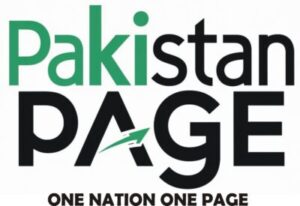By Shahid Ulhaq
Sports Philanthropist, Development Strategist, Former National Coach
In the wake of the Pakistan Hockey Federation’s (PHF) recent communication to the FIH and Asian Hockey Federation (AHF) about its unwillingness to send the national team to India for the upcoming Asia Cup, a deeper wound has been reopened — the ever-persistent void between two of South Asia’s largest nations, India and Pakistan.
Tariq Bugti, head of PHF, stated that “security concerns” are preventing the team’s participation. This cautious and delayed stance indirectly indicates that Pakistan was initially inclined to participate, but external policy pressures and governmental ambiguity overrode the sporting intentions. Ironically, this time it is Pakistan raising the red flag, while India has historically hidden behind the same narrative to avoid sending its teams, particularly the cricket team, to Pakistan.
Sport: A Victim of Nationalist Agendas
The consistent politicization of bilateral sports — cricket, hockey, and even emerging games — has caused irreparable damage to the sporting ecosystem in the subcontinent. Sporting events are not just tournaments; they are symbols of cultural exchange, people-to-people dialogue, and shared legacies. And yet, politics continues to rob us of such powerful opportunities for harmony.
The Dream Peace Olympic Arena: From Concept to Necessity
In this climate of distrust and diplomatic deadlock, the “Dream Peace Olympic Arena” emerges as not just a concept, but a necessity — a physical and symbolic venue to reclaim the lost trust through sports.
The idea, first developed during the Generation For Peace Camp 2009 (GFP-09) in Abu Dhabi, where I had the honour of presenting this vision, was originally called the Dream Peace Court. Over the years, this concept has evolved into the Dream Peace Olympic Arena — a neutral, demilitarized, international sports zone at or near the zero line between India and Pakistan, where youth, athletes, and future leaders of both countries can meet, compete, and understand each other beyond headlines and hostile rhetoric.
What Is the Dream Peace Olympic Arena?
Location: Proposed at the Zero Line, at Wahga-Atarri, either in a mutually agreed demarcated territory or a newly developed neutral corridor between both nations.
Infrastructure: A multi-sport complex with Olympic-level facilities — hockey, cricket, athletics, wrestling, and traditional games of the region — built with contributions from both India and Pakistan under international supervision.
Governance: Jointly governed by an Indo-Pak Peace Sports Council with oversight from the International Olympic Committee (IOC) and United Nations Peacebuilding Commission.
Purpose:
Serve as the permanent venue for bilateral sporting events.
Host a bi-national Olympic-style event every four years — Dream Peace Olympics.
Facilitate training camps and exchange programs.
Offer sports scholarships for youth from conflicted or border regions.
Invite the world to participate in a sports movement for peace, not politics.
Why the World Should Pay Attention?
This project isn’t just for India and Pakistan. In a world marred by geopolitical conflict, cultural suspicion, and rising extremism, sports remain the strongest social tool for healing and development. The Dream Peace Olympic Arena could be the world’s first peace-built sporting venue, much like Geneva for diplomacy or Oslo for peace prizes.
Impact on Policy and Humanity
Depoliticize Sports: The arena will ensure uninterrupted athletic relations irrespective of the political weather.
Build People-to-People Trust: Athletes, coaches, and fans will engage as humans first, not hostiles.
Inspire the World: The arena would serve as a template for other conflict-prone regions – Palestine/Israel, North/South Korea, Armenia/Azerbaijan – to rethink engagement through peaceful sports diplomacy.
Youth Engagement: With over 65% of the population under 30 in both India and Pakistan, sports can provide direction, purpose, and unity.
Final Thought: A Call to Action
At a time when stadiums echo with silence and political walls rise higher, it is time to dream louder. The Dream Peace Olympic Arena is no longer just a dream; it is a moral, social, and diplomatic imperative.
To the sports ministries, foreign offices, and Olympic committees of India and Pakistan — let history remember you not for bans and boycotts, but for building a shared field of peace where our next generations can run, not from war, but toward one another.
Let the world witness: we did not let our differences define us — we let our dreams unite us.
Shahid Ulhaq is a Sports Philanthropist, Sports Development Consultant, and Founder of Sports and Fitness Association of Pakistan and SPOFIT. He was a delegate at the Generation for Peace Camp-09, where the concept of Dream Peace Court was first presented. He continues to advocate for regional peace through sports.

